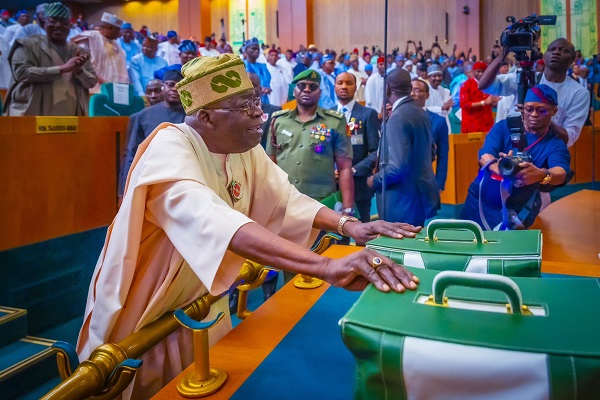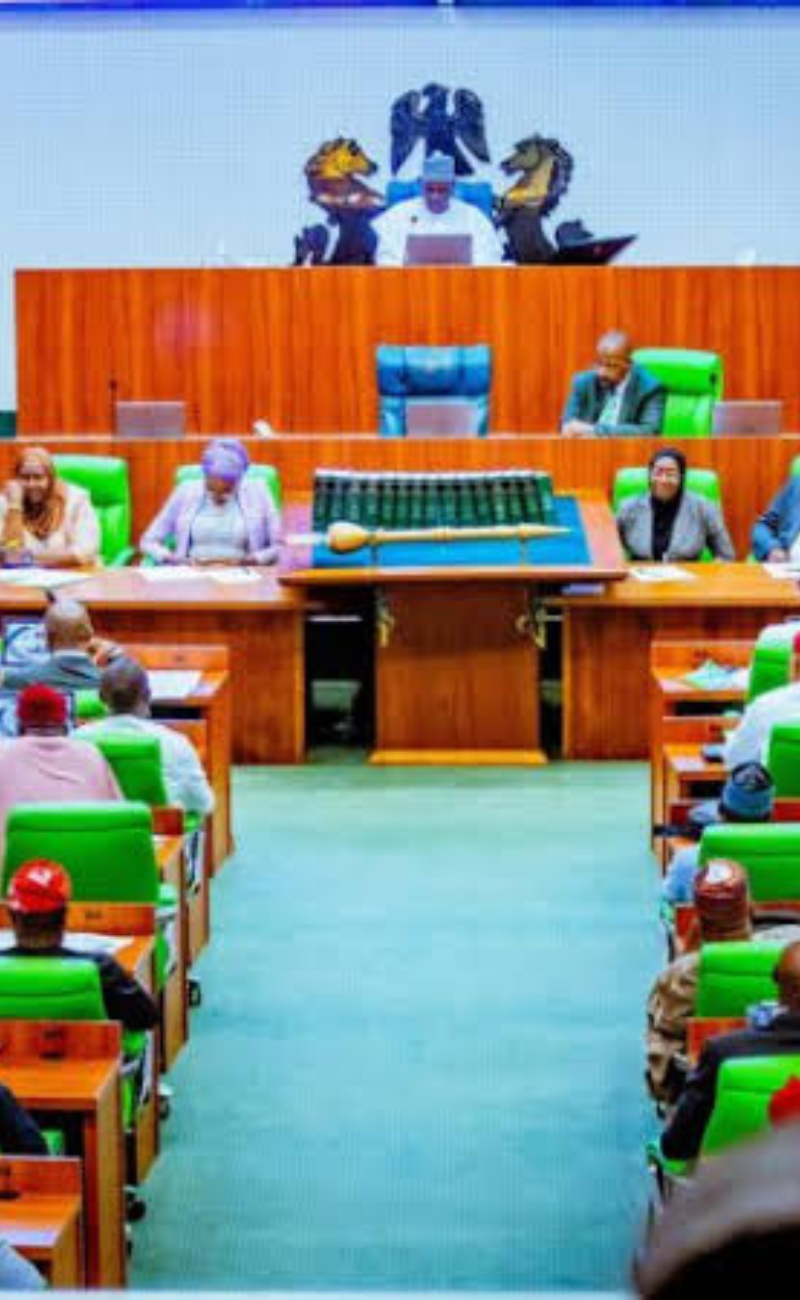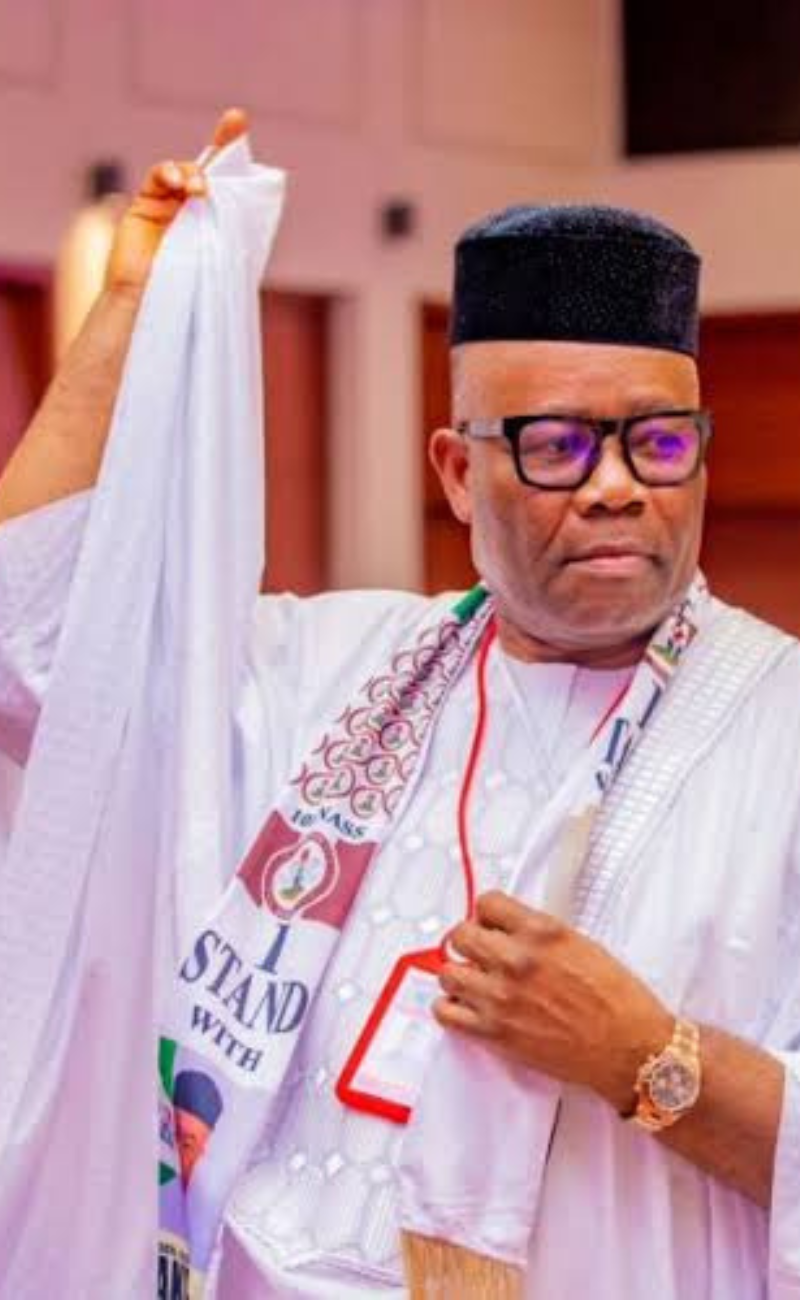After a robust debate, the House of Representatives has advanced the N49.7 trillion 2025 appropriation bill to second reading

The House of Representatives, after a four-hour robust debate on Thursday, passed the second reading of the N49.7 trillion 2025 appropriation bill titled “Securing Peace, Rebuilding Prosperity.”
The budget, which President Bola Tinubu presented to a joint session of the National Assembly on December 18, is set to address critical economic and security challenges facing the country.
The bill seeks to authorize the withdrawal of N49.7 trillion from the Consolidated Revenue Fund, with allocations including N4.4 trillion for statutory transfers, N16.3 trillion for debt servicing, N14.1 trillion for recurrent (non-debt) expenditure, and N14.8 trillion for capital development projects. The House suspended its rules to facilitate the speedy passage of the first and second readings.
Leading the debate, the House Leader, Rep. Julius Ihonbvere (APC Edo) stated that the President while presenting the estimates, said that he is aware of the challenges faced by Nigerians. He noted that “we cannot take decisive steps without a decisive decision. Once we have courage and carry others along as the president carries the National Assembly along there is no way we cannot achieve this.
” It is not the size of the budget that makes a difference. The amount of money is enough to be sufficient, money available to implement great things. It is really a commitment to implementation, to monitor, to evaluate, to contribute, to ensure that the funding dissipates and I think the President gave a commitment to these issues in his speech to us in this House.
“The fact remains that if the budget will work or no work depends on how Nigerians will take the current challenges and the future they face.” He therefore urged his colleagues not to worry about the size of the budget.
ALSO READ: Reps to hand N705 million savings from salary cut to Tinubu
In her contributions, Rep. Kafilat Ogbara (APC Lagos) noted that the budget is coming at a very crucial time when the nation is navigating through economic recovery and developmental challenges. She criticised that some people have said that the budget is too ambitious or that it can trigger inflation, but that it clearly target inflation reduction from 34 percent to 15 percent.
“I also want to say that this budget also highlights its key economic goals, which will be stimulating growth, you know, ensuring that infrastructure is more advanced, and of course, to ensure that we promote social welfare.
“And this is why the proposal of this budget has highlighted the three major areas, which is defense and security, which will be consolidating on the gain that we have gained from security challenges in the last four years.
” I want to urge my colleagues that we should all approach this budget with a lot of collaboration, cooperation, and of course, we should use, you know, positive thinking to criticize this budget. I believe that it’s not enough to present a budget, but the implementation of the budget is more critical,” Ogbara added.
Speaking also, Rep. Idris Wase (APC Plateau), appreciated the leadership of the president for coming to rescue the country.
He said “We are all aware of security challenges in our country, if the budget is properly utilized, I think the challenges in the Niger delta and other parts will be addressed. Education is one very key areas that the president has paid attention to”
Rep. Abdussamad Dasuki (PDP Sokoto), reiterated the Speaker’s speech that what has been allocated to defense in comparison to other nations is not enough. He noted that in view of current realities facing the nation, and in view of the exchange rate, the amount budgeted for defense may not be sufficient.
“So I would call on the committee of defense and leadership to work together with those that are acquiring all that is required to fight this insecurity. When we get to 2025, we’ll have less security challenges.”
Dasuki also canvased for more funds for the North East Development Commission (NEDC) which was recently constituted. However, he challenged the parameters used to allocate funds to the region in view of the challenges facing the zone.
Adding to the debate, the deputy minority whip, Rep. George Ozodinobi (LP Anambra), commended president Tinubu’s ambitious budget, saying however that “ the issue of moving inflation from 34 percent to 15 percent is hypothetical, let just see how it goes.” He lamented the marginalization faced in the region saying the amount earmarked for the South East Development Commission (SEDC) is not enough for a take off grant.
The minority leader, Rep. Kingsley Chinda (PDP Rivers), in his contribution said there is no doubt that the president was optimistic in the 2025 budget presentation, but questioned: “are these projections realizable?”
Chinda argued that as loadable as these projections might be, the inflation reduction target from 36.9 percent to 15 percent “is too ambitious, we cannot achieve that. Even where we achieve the issues of insecurity in 2025 doesn’t it follow that immediately the same year that we will also achieve food security. The answer is definitely no. If we achieve security in 2025 we expect fundamental improvements in perhaps the following year but to continue to budget that we are going to achieve security in 2025 and the same 2025 that we are going to achieve food security is self deceit”. He noted that the budget for security will not take Nigeria to the promised land.
Chida called for the expansion of revenue generating sources. “We should be looking at non oil sectors. And we should also be looking at rather than increasing tax but expanding the tax net.
He also warned that the deficit is too high. “I also didn’t see how Nigeria would go to bed on an empty stomach without this kind of deficit”.
After putting the bill to a voice vote, the speaker referred the bill to the committee on appropriation for further legislative actions.



